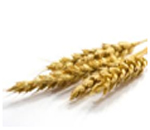Try to consume detergents food such as fresh fruits and vegetables and crunchy peanuts. Consuming this type of food creates friction that removes part of the plaque in addition to increas salivation that removes particles aliments. Vitamins are essential to our oral health, in addition to the minerals (calcium, fluorine, phosphate ). We can find them in our food.
Vitamine C (vegetables, fruits...)

The benefits are many and it is for the health of the tissue supporting the teeth, in other term our periodontium. Indeed, it participates in the synthesis of collagen necessary for the formation of ligaments, blood vessels and mucous membranes. It also has an antioxidant action on the tissues. Finally, it promotes immune defenses against microbial attacks that cause tooth loss.
Vitamine E (Olive oil, wheat germ...)


Synergistically with vitamin C, and it protects membranes and mucous of the oral cavity.
Vitamine D (Fish, mozzarella...)


It's contribution is important, together with calcium, for the formation of bones of our jaws.
Calcium

Calcium is present in large quantities in dairy products (milk, cheese, yogurt ...). It is also found in fruits and vegetables. Drinking water is also a very important source of calcium: you need to choose a mineral water rich in calcium.
The use of fluoride, systemically and topically, is the most effective way to prevent cavities and preserve the oral health.
Fluorine, a major component
Fluoride is certainly part of the dental health plays an essential role in protecting the teeth. This nutrient is fixed on the enamel during the formation of tooth germs and between 0 and 12 years old, during a transfer of fluoride orally. After tooth eruption, fluorine administered locally (toothpaste, gel or mouthwasher liquide) enhances enamel by favoring its remineralization and decreases the amount of plaque on the tooth surface.
Beware of overdose
Like any active product, the concept of dose should remain present: an excess of fluorine, all origins (ingestion of toothpaste in children, tap water, bottled water, drops or tablets) is harmful, as any other excessive medication. An overdose of fluoride can cause fluorosis, which manifests itself by the appearance of unsightly stains on teeth.
The child and the fluorine balance
To avoid overdose, it is essential, before any prescription fluoride, to establish with your dentist or pediatrician a fluorine review for your child. This review help's to determine the daily amount of fluorine absorbed by the child in hisdrinks and food, also to make a decision on the prescription of a fluorine supplementation.
Know the dose of fluoride in water
For tap water, see if it is noted on your water bill or check with your municipality. For bottled water, the fluorine content is usually indicated on the label.
Recommendation of the AFSSAPS
Any prescription for fluoride should be preceded by a fluorinated record of the child. The most effective method to prevent caries is tooth brushing with fluoride toothpaste with an appropriate fluoride dose. Only children with high caries risk should receive fluoride supplementation drug orally from the age of 6 months, unless medically prescribed.








